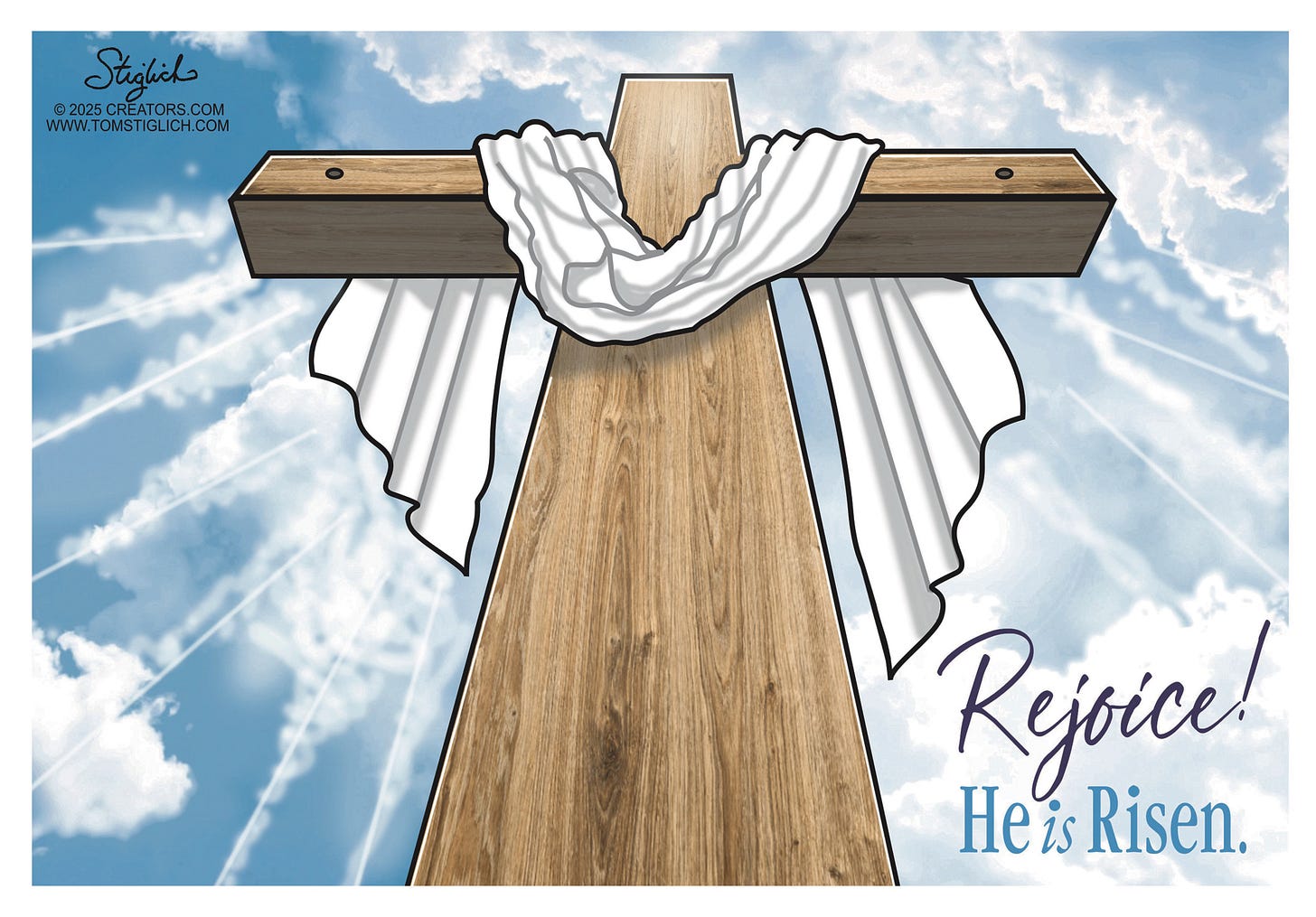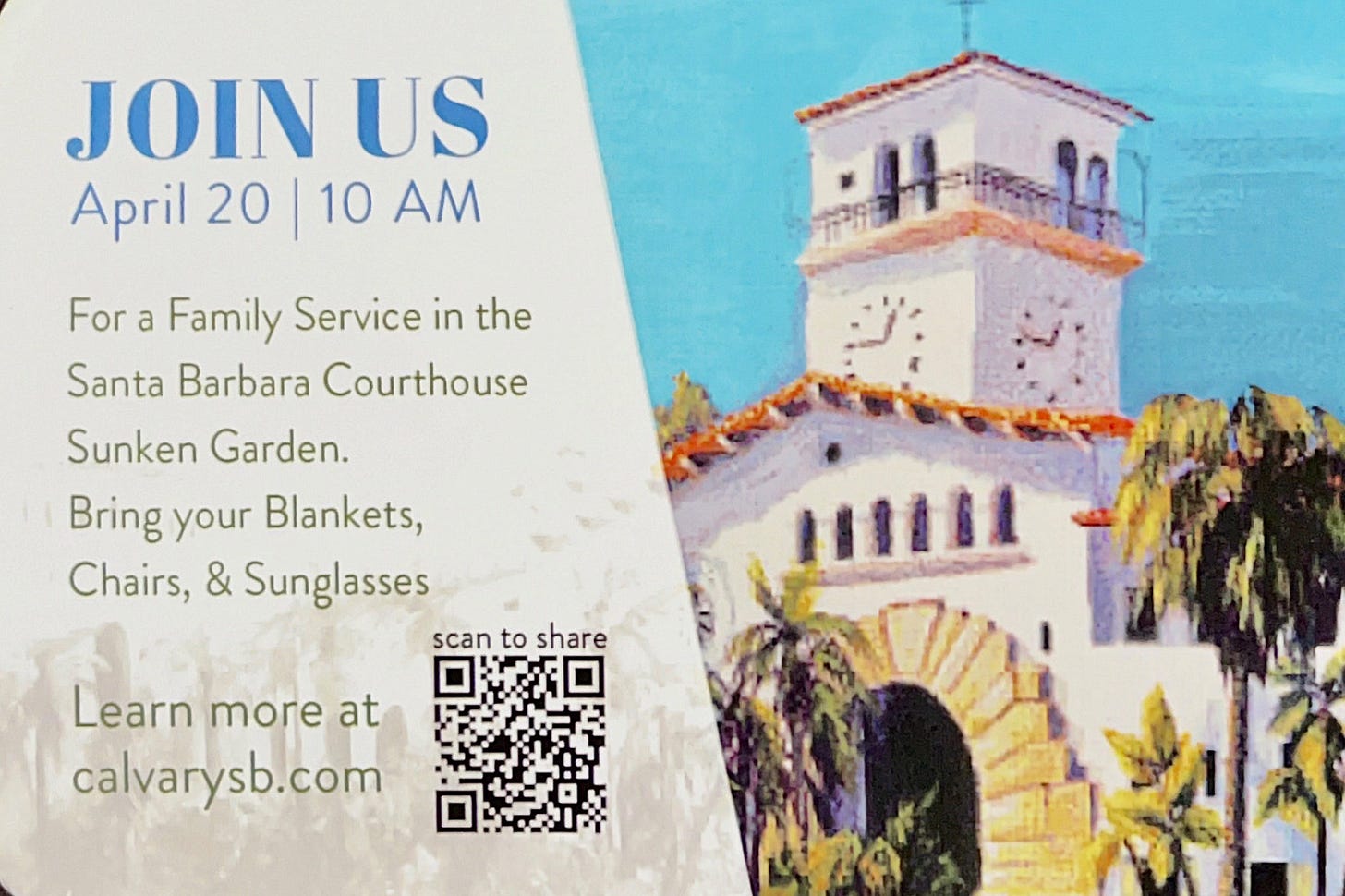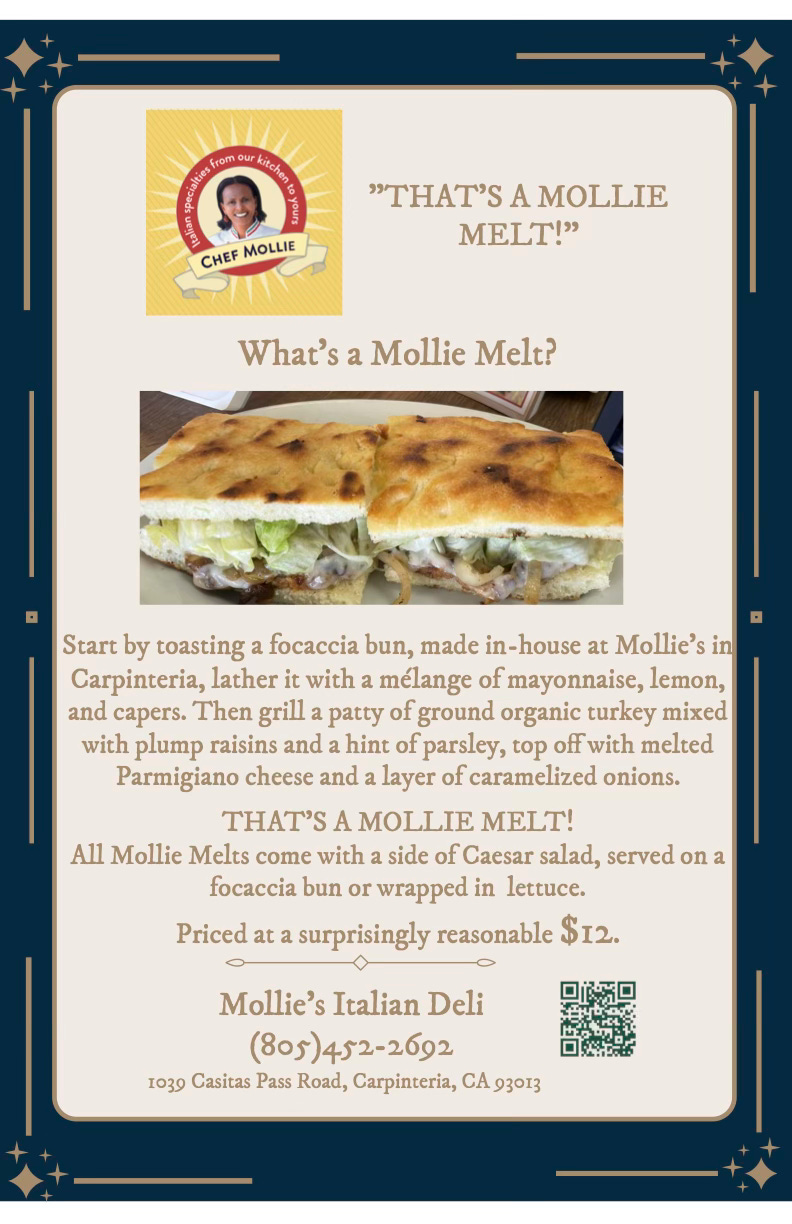Taking a Wrong Turn in the Pursuit of Happiness
Most Americans don’t correctly understand the phrase in the Declaration of Independence having to do with “the pursuit of happiness.” The best interpretation of the meaning of the phrase in that era comes from the Massachusetts Constitution of 1780 which notes that “the happiness of a people, and the good order and preservation of civil government, essentially depend upon piety, religion, and morality.”
This Easter Sunday, would you please consider the many deleterious impacts to our collective happiness having to do with nihilism, hedonism, narcissism, and materialism? This is extremely important because these views and beliefs dominate our society today to our collective demise.
Nihilism is defined by Merriam Webster’s dictionary as a viewpoint that traditional values and beliefs are unfounded, and that existence is senseless and useless. Further, nihilism is a doctrine that denies any objective ground of truth and especially of moral truths. It can also be described as a doctrine or belief that conditions in the social organization are so bad as to make destruction desirable for its own sake independent of any constructive program or possibility. The dictionary quotes Ronald Nash describing nihilism as “a condition in which all ultimate values lose their value.”
The same dictionary defines hedonism as the doctrine that pleasure or happiness is the sole or chief good in life, with the modern-day connotation that if someone is described as living a life of hedonism, the implication is that he or she derives happiness from debauchery. The only thing in life that matters to a hedonistic person is what can and will satisfy their personal desires. As Joseph Kupfer, a Professor of Philosophy, puts it, hedonists focus on pleasure as their primary interest, but pursuit of it leaves them without “the self-control provided by reason to pause in their reaching for pleasure to ponder what might give them the most pleasure overall or in the long run.”
Narcissism is defined as excessive interest in oneself. According to a science news site, narcissism is a personality trait marked by grandiosity, an inflated sense of self-importance, a deep need for excessive attention and admiration, and a lack of empathy for others. The Mayo Clinic adds the following: “Narcissists have an unreasonably high sense of self-importance and require constant, excessive admiration. They feel that they deserve privileges and special treatment. They expect to be recognized as superior even without achievements. They make achievements and talents seem bigger than they are. They are preoccupied with fantasies about success, power, brilliance, beauty, or the perfect mate.”
Materialism is a tendency to consider material possessions and physical comfort as more important than spiritual values. It is the belief that having money and possessions is the most important thing in life. Randy Alcorn, in an excerpt from his book, “Money, Possessions and Eternity,” writes that God created us to love people and use things, but materialists love things and use people. He tells us that John Steinbeck wrote a letter to Adlai Stevenson, which was recorded in the January 28, 1960, edition of The Washington Post. Steinbeck says, “If I wanted to destroy a nation, I would give it too much, and I would have it on its knees, miserable, greedy, sick.” As Alcorn explains, most people chase their mirages with money, but they run out of money before they run out of mirages.
Hence, after defining the problem, this Easter Sunday, I would like to share with you why I believe the one and only solution to these ills of society is the cross of Jesus Christ and his empty grave. That is, it is very easy to get into a habit of cursing the darkness, when the only thing that will help is to hold up the light of the world.
All the “isms” have to do with living for self and this world, and the resultant futility of the same. Living for God is the only means to escape the “isms,” which God describes as sin, and the fruit thereof of futility, emptiness, and bitter disappointment.
Do you remember the song “Oh Happy Day”?
Oh, happy day (oh, happy day)
Oh, happy day (oh, happy day)
When Jesus washed (when Jesus washed)
Oh, when He washed (when Jesus washed)
When Jesus washed (when Jesus washed)
He washed my sins away (oh, happy day)
Oh, happy day (oh, happy day)
Happy Easter Sunday.
Andy Caldwell, Executive Director, COLAB







Amen and Praise God for the empty tomb . “He is risen “ are the 3 most important words in human history.
“Narcissists have an unreasonably high sense of self-importance and require constant, excessive admiration."
Teddy Roosvelt's daughter had it right when she said of her father - "He wants to be the corpse at every funeral and the bride at every wedding."